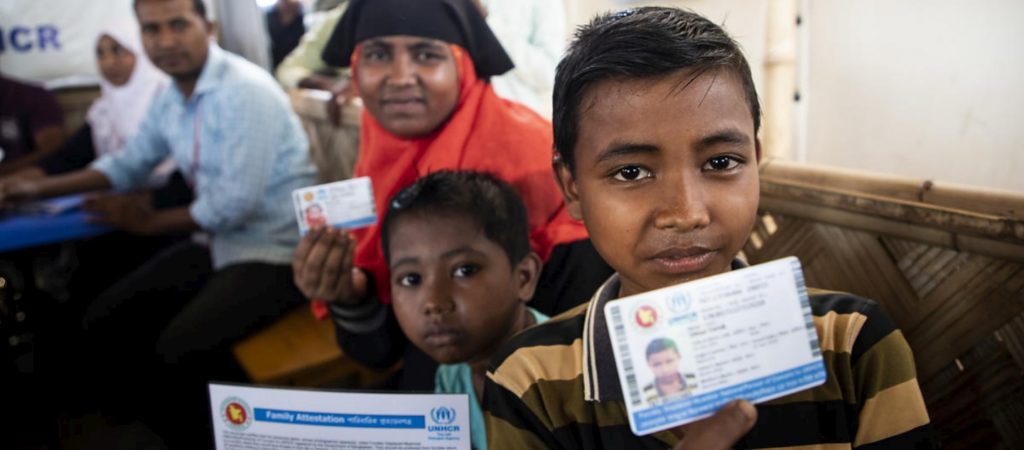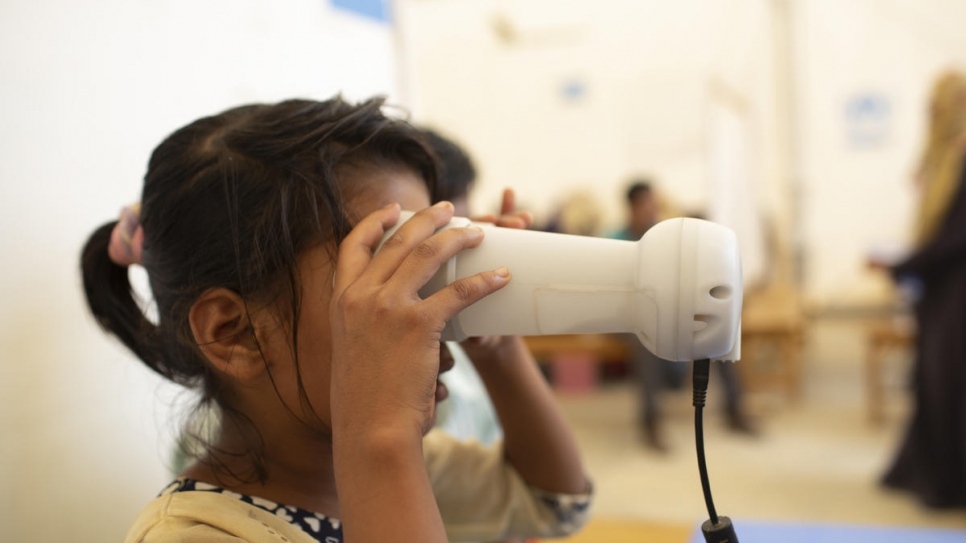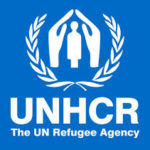Registration Gives Many Rohingya Refugees Identification for the First Time
ASIA-UPDATES ON MYANMAR ROHINGYA GENOCIDE, 20 May 2019
Alex St-Denis | UNHCR – TRANSCEND Media Service
More than 270,000 stateless refugees from Myanmar provided with identity cards in an ongoing registration drive.
17 May 2019 – Nasima Aktar is among hundreds of thousands of stateless Rohingya – many of whom have spent a lifetime without official documentation – for whom getting an official identity card is a significant step.
“We want documents for Rohingyas. This is our document,” says Aktar, who recently received a plastic identity card bearing her basic biodata, photo and country of origin in a registration drive in Bangladesh.
There are more than 900,000 Rohingya refugees like Nasima living in crowded settlements in southeast Bangladesh of whom an estimated 741,000 have fled a violent crackdown by the Myanmar military since August 2017.
“Having an identity is a basic human right … it’s also an incredible step into a more dignified life.”
Despite living in Myanmar for generations they were not able to acquire formal citizenship and documentation that comes with this, leaving them stateless and deprived of basic rights.

A family of Rohingya refugees hold up their identity cards after completing a UNHCR-run registration process at Kutupalong refugee settlement, Bangladesh. © UNHCR/Will Swanson
She is now among more than a quarter of a million Rohingya refugees who have been registered in a push since June last year by UNHCR, the UN Refugee Agency, in support of the Bangladesh government, in an effort that also helps to safeguard their right to voluntarily return home to Myanmar.
“Having an identity is a basic human right,” said UN High Commissioner for Refugees Filippo Grandi during a recent visit to Cox’s Bazar. “And remember: many of these people, all their life, did not have a proper identification. So, for them, it’s also an incredible step into a more dignified life.”
To date, a total of 270,348 refugees have been registered in the settlements of Ukhia and Teknaf Upazilas. On average, over 4,000 refugees are being registered a day in the exercise, with the aim of concluding the registration of all those in the settlements late this year.

A young Rohingya refugee from Myanmar has her iris scanned as a part of a registration exercise at Kutupalong refugee settlement, Bangladesh. © UNHCR/Will Swanson
The exercise also improves the accuracy of data on refugees in Bangladesh, which will help the authorities and humanitarian partners to better understand the needs of the refugee population. It will allow them to plan and target assistance more effectively, particularly for vulnerable groups such as children, women, and those with disabilities.
Refugees are registered using biodata and biometric data, including fingerprints and iris scans to provide them with a unique identity. At the end of the registration process, refugees receive a plastic ID card that includes a photo, and basic information such as date of birth and gender. Only refugees over the age of 12 receive the card but families also receive an attestation showing the details of all family member.
All information on the documents is in English and Bengali and indicates Myanmar as the country of origin. The documents were developed in cooperation with the Bangladesh government and carries both government and UNHCR logos.
“They understand that this exercise has nothing to do with forcible return,” UNHCR registration officer Nurul Rochayati explains. “This exercise is to establish their protection in here, and to establish their right to return. They will return when they’re safe, in safety and dignity.”
To better explain the benefits of registration, UNHCR and the Bangladesh authorities in recent months held meetings with the community including with leading Rohingya figures, such as imams, elders and teachers. Community outreach teams, that include refugees, go out regularly to talk about the registration process and encourage people to attend.
With the cyclone season underway, registration will also help reunite families in case they get separated during storms.
_____________________________________________________
See also: ‘In all my life, I’ve not known even five minutes of peace’
Tags: Activism, Asia, Burma/Myanmar, Conflict, Genocide, Geopolitics, Human Rights, Humanitarianism, Indigenous Rights, Justice, Racism, Religion, Rohingya, Solutions, UN, Violence, Violent conflict
DISCLAIMER: The statements, views and opinions expressed in pieces republished here are solely those of the authors and do not necessarily represent those of TMS. In accordance with title 17 U.S.C. section 107, this material is distributed without profit to those who have expressed a prior interest in receiving the included information for research and educational purposes. TMS has no affiliation whatsoever with the originator of this article nor is TMS endorsed or sponsored by the originator. “GO TO ORIGINAL” links are provided as a convenience to our readers and allow for verification of authenticity. However, as originating pages are often updated by their originating host sites, the versions posted may not match the versions our readers view when clicking the “GO TO ORIGINAL” links. This site contains copyrighted material the use of which has not always been specifically authorized by the copyright owner. We are making such material available in our efforts to advance understanding of environmental, political, human rights, economic, democracy, scientific, and social justice issues, etc. We believe this constitutes a ‘fair use’ of any such copyrighted material as provided for in section 107 of the US Copyright Law. In accordance with Title 17 U.S.C. Section 107, the material on this site is distributed without profit to those who have expressed a prior interest in receiving the included information for research and educational purposes. For more information go to: http://www.law.cornell.edu/uscode/17/107.shtml. If you wish to use copyrighted material from this site for purposes of your own that go beyond ‘fair use’, you must obtain permission from the copyright owner.
Read more
Click here to go to the current weekly digest or pick another article:
ASIA-UPDATES ON MYANMAR ROHINGYA GENOCIDE:
